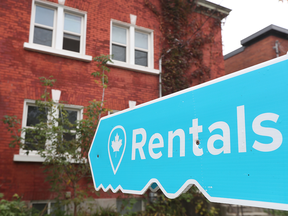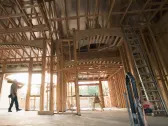Rising Average Rent in Canada: A Comprehensive Update
Introduction
The average rent in Canada has seen a notable increase over the past year, driven by factors including higher demand and limited supply. Real estate experts across the country are bracing for further price hikes, as competition among renters intensifies. This upward trend is expected to persist, with experts forecasting that average rental prices will continue to grow at an accelerated pace in coming months.
Key Factors Behind Rent Growth
The surge in average rent can be attributed to several critical factors:
- Rising Demand: The population growth of major cities like Toronto and Vancouver has increased the number of potential renters, outpacing the limited availability of housing options.
- Limited Supply: Despite efforts to expand housing stock through government initiatives and private development, supply remains constrained in urban centers.
- Interest Rates: Higher mortgage rates have made homeownership less affordable, encouraging renters to seek alternatives like condominiums and shared accommodations.
Regional Variations in Rent Growth
Different regions across Canada are experiencing varying rates of rent increase:
- Toronto: Average monthly rent for a one-bedroom apartment rose by 22.2% annually, reaching $2,506, while two-bedroom rentals saw a year-over-year increase of 19.7%, hitting $3,286.
- Vancouver: Rent prices have been among the highest in Canada, with one-bedroom apartments experiencing an annual growth rate of 24% and two-bedroom units increasing by 19%.
- Calgary: Rents for both one-bedroom and two-bedroom condominiums saw a year-over-year increase of 24.9%, reaching $1,890 for one-bedroom units and surpassing $3,500 for two-bedroom units.
- Ottawa and Montreal: These cities have also seen significant rent increases, with average prices rising by double-digit percentages in both urban centers.
Impact on Shared Accommodation and Private Room Rentals
As traditional housing markets remain under demand due to supply constraints, the share of people renting private rooms or shared accommodations has been growing. Single-room rentals now account for a notable portion of overall rental activity, with national average asking rents reaching $834 per night.
Expert Analysis
Real estate experts have expressed optimism about future rent growth, citing strong demand and limited supply as key drivers. For instance, experts predict that average rents will continue to rise in the coming months, with some regions expected to experience double-digit percentage increases.
Conclusion
The ongoing trend of rising average rent is a complex interplay of population growth, constrained housing supply, and shifting rental preferences. As demand outpaces supply in major cities across Canada, rental prices are set to remain elevated for the foreseeable future. Real estate professionals urge renters to act swiftly to secure desirable properties before prices become unattainable.
This article is brought to you by Postmedia, your trusted source for accurate and unbiased news. For more updates on real estate trends in Canada, visit our website or follow us on social media platforms.



